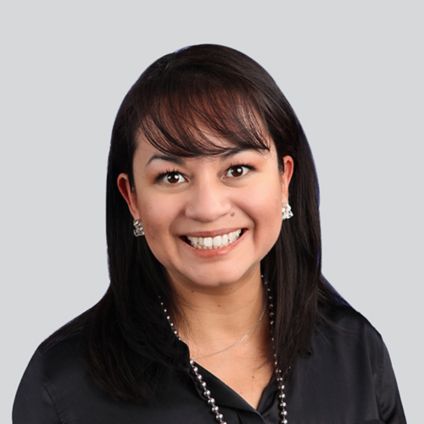Audit committees are asking about organizational talent. But are they looking at their own talent? Successfully meeting the challenges and opportunities of diversity, equity and inclusion (DEI), ESG and evolving technology starts at the top—and audit committees need expert members and ongoing training to think critically about these and other emerging risks.
Developing critical thinking around ESG
We’re moving from a regime where organizations have voluntarily started to enact environmental, social and governance (ESG) measures and reporting to a regime of mandatory reporting required by governments and regulators as table stakes. As these reporting requirements mature, audit committees will need to move beyond merely possessing ESG knowledge to think critically about ESG. That means asking questions about ESG data sources, collection and collation, and challenging the organization’s commitment to environmental and social goals and the steps it’s taking to achieve these commitments.
Talent will be a crucial factor in meeting ESG commitments—it will take people with specialized skills and critical thinking abilities to make decisions and execute on the organization’s ESG strategies. The audit committee should ensure that management is acquiring and developing people with these skills, and committees may want to consider recruiting new members with this specialized knowledge or upskilling existing members. New skill sets and diversity of thought will build the required interdisciplinary focus to consider sustainability in everything: from tactical internal audit tasks to strategic planning to build business value with a systems’ thinking approach.
Reassessing DEI risks
Most ESG reporting is focused on climate, but multiple stakeholders are driving companies to pay more attention to the social component of ESG. As a result, organizations are reassessing their risk around human rights and DEI, looking at who they’re impacting and reevaluating their conduct risk frameworks.
Poor DEI practices can expose an organization to an array of risks. If they’re perceived as not having a social conscience, the damage to a company’s brand can reduce sales and hurt employee recruitment, retention and engagement. In some instances, biases can directly and negatively impact operations.
For example, one organization was looking at how their risk management was impacting professionals in an equity-deserving community when they applied for mortgages and other financial products. They discovered that this community had less access to education, so they were less financially literate and didn’t fully understand the contracts they were entering. This challenge was overcome by taking a less generic approach to risk management and helping applicants from the community learn the financial foundations behind the products.
Audit committee members are seen as guardians of the organization. If they view reporting with an eye on assessment, they will become the organization’s judges. But if they view reporting from the perspective of an innovator, they can act as a catalyst and leverage data to help the organization evolve and thrive with sustainable value.

There are also regulatory risks and reporting requirements associated with DEI. The New Accessible Canada Regulations will require organizations to report regularly or face fines.1 Organizations with more than 100 employees are required to prepare and publish their first accessibility plans in 2023, while organizations with 10 to 99 employees must publish their plans in 2024. These plans will need to be updated and published every three years.
These risks can extend to the organization’s supply chain as well. For example, the Fighting Against Forced Labour and Child Labour in Supply Chains Act will require some Canadian companies to report annually on their practices starting in 2024.2 Failure to report can result in fines, investigations and liability for directors.
Audit committees will need to ask management how they’re identifying and addressing inequities and biases. For instance, formal analytical processes such as Gender-Based Analysis Plus (GBA Plus) can be used to understand which equity-deserving groups are being impacted by the practices and procedures of the organization and how individuals in these groups might be experiencing these practices.3
Adding diverse talent to the organization is one way to address biases and inequities. Ideally, this would be done at every level of the organization, but historical biases and inequities can make talent diversity more challenging to achieve at senior levels. For this reason, learning and development aimed at helping all employees identify and address equity issues is essential and allows the firm to be agile as equity issues change.
New issues require new thinking
It’s becoming increasingly important for audit committees to add an equity lens to their oversight. They need to ensure management isn’t generically addressing these risks but is specifically addressing impacts on different communities, to consider the societal impact of their organization’s operations. To accomplish this, committee members will need training on how to apply an equity and a sustainability lens—and they may want to consider the diversity of the committee when bringing on new members.
Beyond risk management, there are other issues where a lens of empathy will be necessary. Audit committees will likely be called upon to contribute to the work-from-home conversation, where accessibility concerns may need to be balanced with control and audit considerations. Committee members may also need to develop the skill sets and comfort level to have conversations about wellness and mental health—including how these affect committee members.
Talent, training and succession: new criteria and new demands
As organizations become more focused on environmental and social sustainability, they may need to consider new criteria when assessing candidates for management, boards and audit committees. Leaders who are empathetic, open-minded and culturally adaptable will be needed as ethical behaviour becomes increasingly important.
These criteria should also be considered for audit committee succession planning. Members need to consider how they’re recruiting and preparing the next generation to think critically and lead in this new risk environment. As the committee expands its focus from financial reporting and numbers to include impacts on people, individual commitment to high ethical standards and governance will be imperative.
Just as employees are encouraged to participate in lifelong learning, audit committee members will need to devote considerable time to developing and updating their knowledge base. New risks continue to evolve for which critical thinking will be imperative.
As new risks arise, the audit committee’s role continues to expand. By applying new criteria to recruitment and succession, and by remaining dedicated to continuous learning, they can apply a critical lens to these risks and drive new opportunities for the organization.
Questions audit committees should be asking
- How are we sourcing talent with the new skill sets you need today and you will need tomorrow?
- How are we committing to delivering on our ESG and DEI commitments?
- Is our ESG and DEI risk appetite at the right level for the organization?
- Are we, as an audit committee, applying our own empathy lens and ethical behaviour to governance?
- What talent or training do we, as an audit committee, need to think critically about new risks with a sustainability long term vision?
Explore the Accelerate series
Insights and resources
Connect with us
Stay up to date with what matters to you
Gain access to personalized content based on your interests by signing up today
Connect with us
- Find office locations kpmg.findOfficeLocations
- kpmg.emailUs
- Social media @ KPMG kpmg.socialMedia









